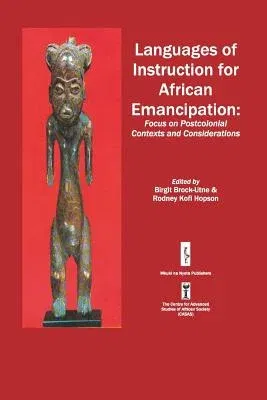Languages of Instruction for African Emancipation is a collection of
case studies from seven African countries poses questions such as: What
alternatives are there for educational language policies towards African
emancipation? What efforts have governments made to change the language
policy in favour of African languages and how far have they succeeded?
What challenges do African learners face when it comes to current
language of instruction policies? The authors reject a language
education policy that neglects the multilingualism existing in Africa;
that reinforces patterns of privilege that existed in the colonial era,
further entrenching the schism between the elite and the masses. They
give short shrift to the 'new' justification of the unjustifiable status
accorded to English in Africa as the language of globalisation,
suggesting that it is not relevant to the vast majority of African lives
and their human development. The sum of thoughts presented suggests that
the answer to the language question provides the key to development
challenges and further emancipation of the African peoples, which, it is
argued, is at the same time a question that will determine whether
Africa will remain a recognisable and distinctive cultural component of
humanity or whether Africans will cease to exist culturally as Africans.


